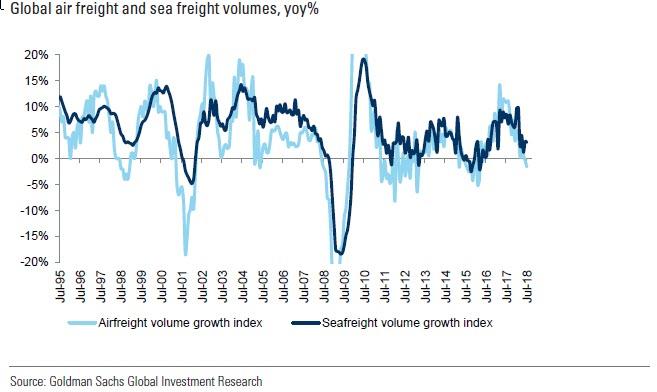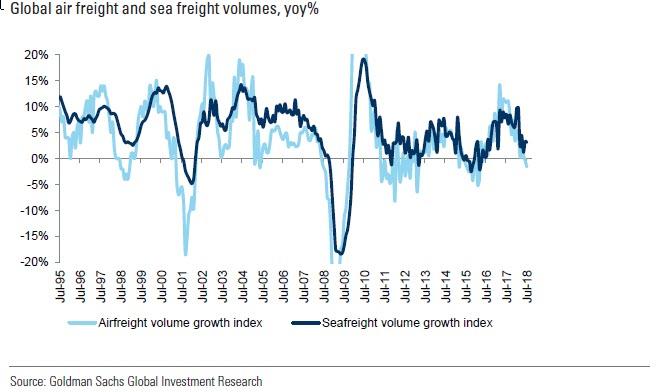With the Trump administration about to slap tariffs of up to 25% on an additional $200 billion in Chinese goods, new data suggests that the global slowdown has already begun. Confirming our observations from two weeks ago, in which we showed that the latest freight data indicated global trade volumes are slowing…

…on Friday
that the world trade monitor compiled by the CPB Netherlands Bureau for Economic Policy Analysis showed the rolling three-month trade volumes are not only in decline but have entered into negative territory, an ominous harbinger of economic trouble.

As Bloomberg notes, “the drop is particularly striking given that commodities, one of the largest and most volatile subsets of globally traded goods, have been doing quite well – the CPB’s indexes of fuels and non-fuel commodities both reached the highest levels since 2014 in May.”
Instead, confirming the ominous recent developments in Brazil, where a clustering of supply-chain linked problems has resulted in a near paralysis in the country’s shipping industry, Bloomberg notes that “the weakness is coming not from materials but from manufactured goods, as global supply chains seize up.”
With the CPB index printing negative throughout the second quarter of the year, that echoes the numerous reports of a slowdown in the US. Manufactures “reported higher prices and supply disruptions that they attributed to the new trade policies,” according to the Federal Reserve’s July Beige Book, in addition to “higher input prices and shrinking margins.”
Next Wednesday, another Beige Book is due, and it is likely to show more evidence of slowing trade as a result of escalating trade wars.
While the stimulative effect of debt-fueled tax cuts and favorable fiscal policy have created a “Goldilocks economy” in the US, resulting in near record freight volumes in US ports, that temporary sugar high is most likely coming to an end, as a substantial portion of the increased volumes were related to businesses pulling forward consumption from future quarters to beat the tariffs, according to the National Retail Federation, an industry group.









Leave A Comment